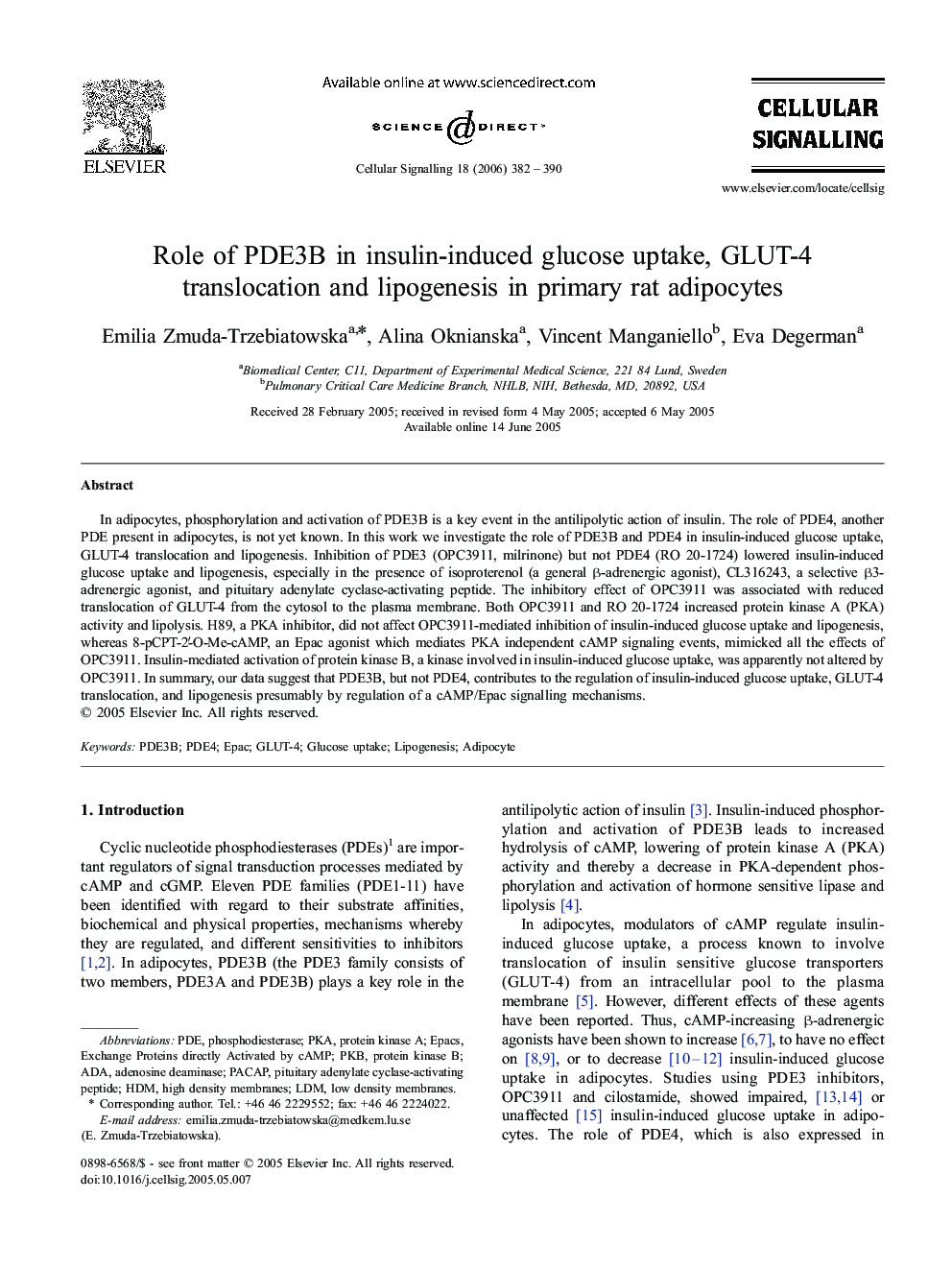| Article ID | Journal | Published Year | Pages | File Type |
|---|---|---|---|---|
| 1964660 | Cellular Signalling | 2006 | 9 Pages |
In adipocytes, phosphorylation and activation of PDE3B is a key event in the antilipolytic action of insulin. The role of PDE4, another PDE present in adipocytes, is not yet known. In this work we investigate the role of PDE3B and PDE4 in insulin-induced glucose uptake, GLUT-4 translocation and lipogenesis. Inhibition of PDE3 (OPC3911, milrinone) but not PDE4 (RO 20-1724) lowered insulin-induced glucose uptake and lipogenesis, especially in the presence of isoproterenol (a general β-adrenergic agonist), CL316243, a selective β3-adrenergic agonist, and pituitary adenylate cyclase-activating peptide. The inhibitory effect of OPC3911 was associated with reduced translocation of GLUT-4 from the cytosol to the plasma membrane. Both OPC3911 and RO 20-1724 increased protein kinase A (PKA) activity and lipolysis. H89, a PKA inhibitor, did not affect OPC3911-mediated inhibition of insulin-induced glucose uptake and lipogenesis, whereas 8-pCPT-2′-O-Me-cAMP, an Epac agonist which mediates PKA independent cAMP signaling events, mimicked all the effects of OPC3911. Insulin-mediated activation of protein kinase B, a kinase involved in insulin-induced glucose uptake, was apparently not altered by OPC3911. In summary, our data suggest that PDE3B, but not PDE4, contributes to the regulation of insulin-induced glucose uptake, GLUT-4 translocation, and lipogenesis presumably by regulation of a cAMP/Epac signalling mechanisms.
